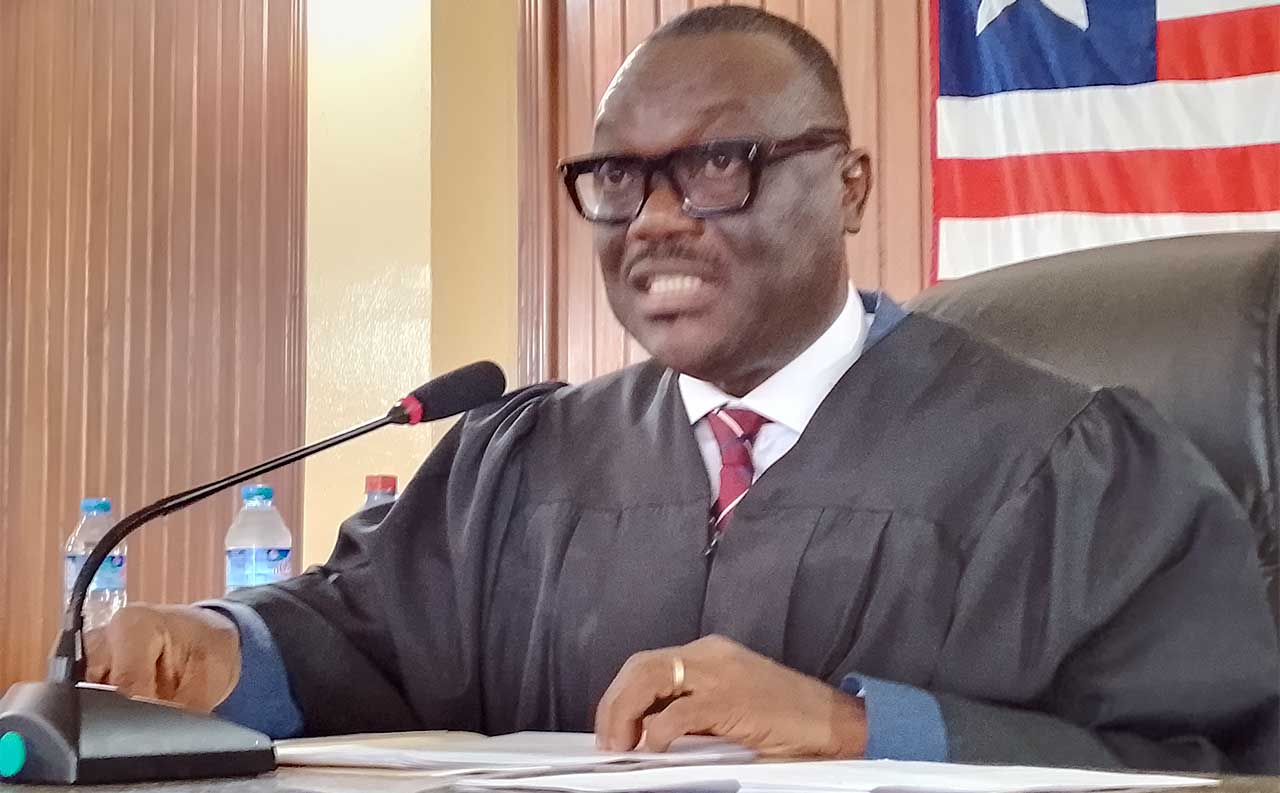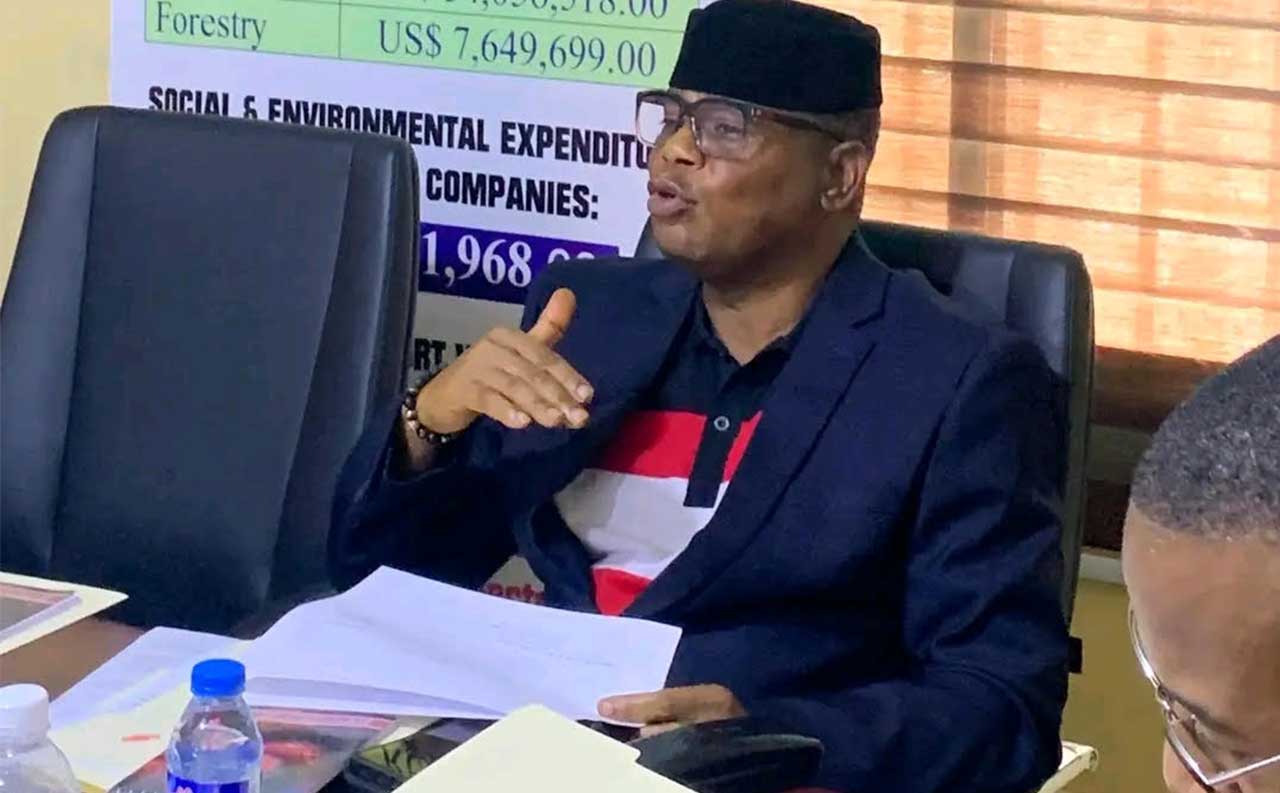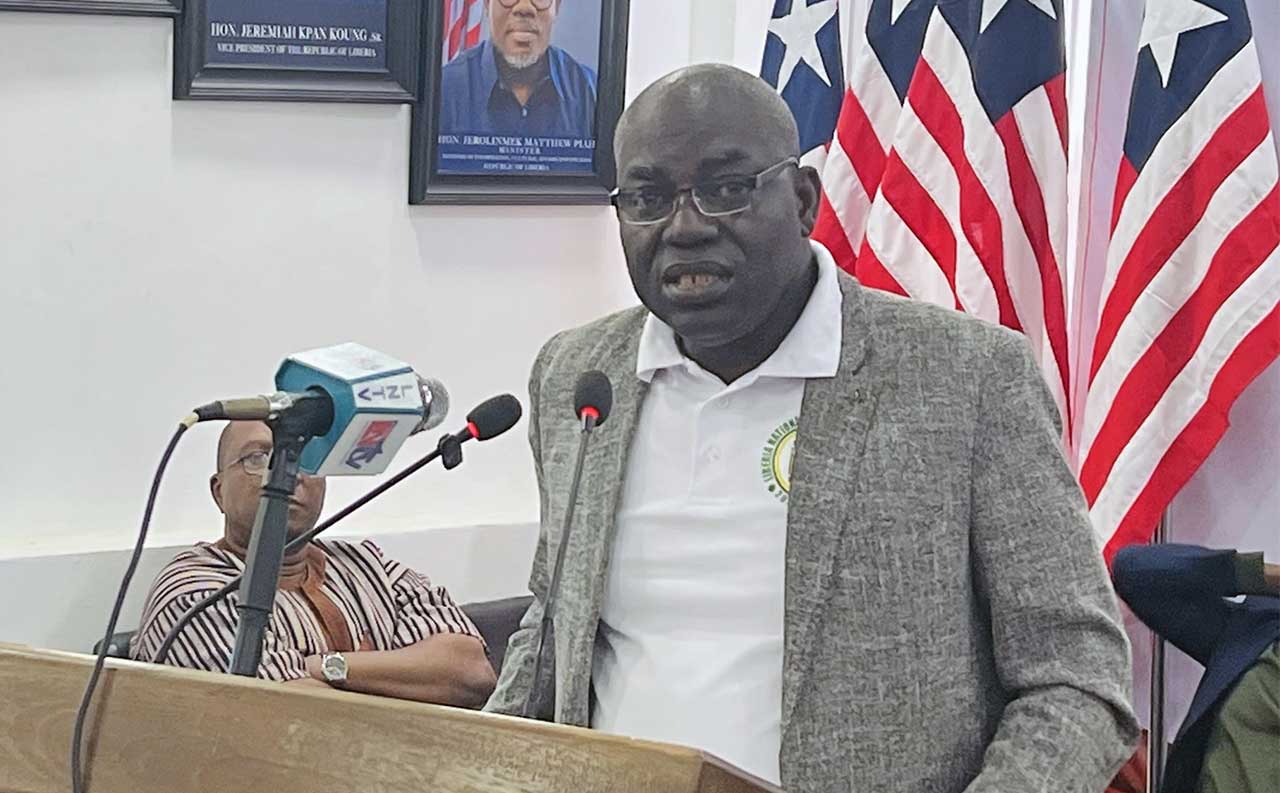During the opening of the November A.D. 2025 Term of Court of Criminal Assizes “A”, “B”, “C”, and “D” for Montserrado County, judges called for the re-visitation of the statutory provision for “one jury trial at a time” to enhance judicial efficiency while maintaining the sanctity of trial by jury. Delivering the judges’ charge, Ousman F. Feika, Assigned Circuit Judge of Criminal Court “C” at the Temple of Justice in Monrovia, on Monday, November 10, 2025 said the time has come for lawmakers to revisit the statutory law concerning the portion of “one jury trial at a time,” terming it as restrictive and a limitation on speedy trial.
Judge Feika said that it as a serious impediment to the expeditious trial of criminal cases, noting that the purpose of the restriction was perhaps rooted in safeguarding the integrity of the jury process, but its practical impact has been counterproductive, so much so that once a jury trial is commenced, no other jury trial can be assigned until the one already commenced is concluded.
The problem with the approach, according to Judge Feika, is that even though there would be free time to conduct another trial, whether jury or bench, because of encroaching circumstances for which the trial cannot proceed daily as originally planned, the court cannot proceed because of the restrictive statutory limitation on the conduct of trial by jury.
He said that with just one judge assigned to a criminal court, particularly the assizes and several indictments ready for trial, this restriction forces a sequential process that stalls the progress of cases, extends pretrial detention, and further crowds the docket. ”It is, therefore, our considered view that legislative reform in this area is long overdue; trial by jury, as we are all aware, is a constitutional requirement and remains one of the most sacrosanct tenets of our democracy that must be upheld at all times. However, we propose the holding of more than one jury trial at a time for the singular purpose of addressing the huge dockets of our courts,” he said. On the issue of prospective jurors, he stated that every term of court, a pool of individuals is submitted to the Jury Management Office of the Judiciary. When selected, Feika indicated that these individuals work with the court during trial to hear evidence and return the verdict based on the weight thereof.
“As we commence this term of court, we expect that individuals selected for jury service will devote their time and energy and commit themselves to upholding truth and fairness as they consider the evidence in each case presented to them. Because the jury is a very important factor in our justice system, individuals who come to serve in this regard must be conscious of the fact that the image of the judiciary also depends on the reasonableness and soundness of the verdict they return in every case.
Judge Feika further said if a jury come to serve because he/she has interest in a case before the court, “you are in the wrong place, because when it is find out, the appropriate legal sanctions against that person will be applied, adding that they have gathered once again under the canopy of the law and in the sacred halls of justice.
He said with a profound sense of duty, mindful of the enormous responsibilities placed upon their shoulders to ensure that justice is not only done but is manifestly seen to be done. The Judge indicated that judicial actors must reflect on the prevailing challenges within the criminal justice system, challenges that continue to test resolve, patience, and collective commitment to the rule of law.
Also, Judge Feika mentioned the persistent challenge of overloaded dockets, stressing that the criminal dockets remain overwhelmingly congested. He stated that despite the tireless efforts of the courts and the parties, the volume of pending cases continues to rise; as such, this situation threatens not only the timely dispensation of justice but also the constitutional trial. ”Our courts are confronted daily with an influx of cases, some newly filed, others carried over from previous terms, creating a cycle of backlog that must be addressed with renewed vigor and strategic planning,” he said.
The judges call upon all stakeholders to include the Ministry of Justice, the Liberia Anti-Corruption Commission (LACC), the Public Defense Office, the Liberia National Bar Association, and the law enforcement agencies to get fully involved in streamlining pretrial processes and ensuring that only meritorious cases proceed to trial; adding that a review of dockets show that if diligence was exercised in the streamlining process, some of those cases would not have found their way on the court’s docket.
’But because investigators are not exercising diligence and patience, we are faced with the situation of overloaded dockets. The essence of justice is not the ability to run to court fast and obtain an indictment or judgment; it is the conviction that indeed a crime has been committed, that the suspect is the actual defendant, and that conviction would be secured based on the weight of evidence gathered or collected,” Judge Feika indicated.
Finally, Judge Feika reaffirm their unwavering commitment to the vision and leadership of the Chief Justice of the Supreme Court of Liberia, Yamie Quiqui Gbeisay whose administration continues to champion the enhancement of the rule of law, the integrity of the judiciary, and the eradication of unethical conduct within the judiciary; adding, as judges and judicial officers, they must embody the highest standards of ethics and impartiality.
Judge Feika: “The robe we wear is not a symbol of privilege, but of humility and service. We must ensure that our actions, both on and off the bench, reflect honor upon the Judiciary and inspire public confidence in its independence and fairness. In this way, we reassure public confidence and trust, and re-establish ourselves as the moral compass of society, whereby our people would rely and trust our ability to dispense justice without fear or favor.”
He wants judicial actors to demonstrate the highest standards of truth-telling, trustworthiness, impartiality, diligence, hard work, integrity, and respect for the rule of law. “This is the only way by which we can earn the trust of the public. We must exceptionally demonstrate that we deserve their trust by exhibiting these virtues in a way. If we, judges, cannot lead by good examples, we should not expect anything different from those who appear before us,” he said.



